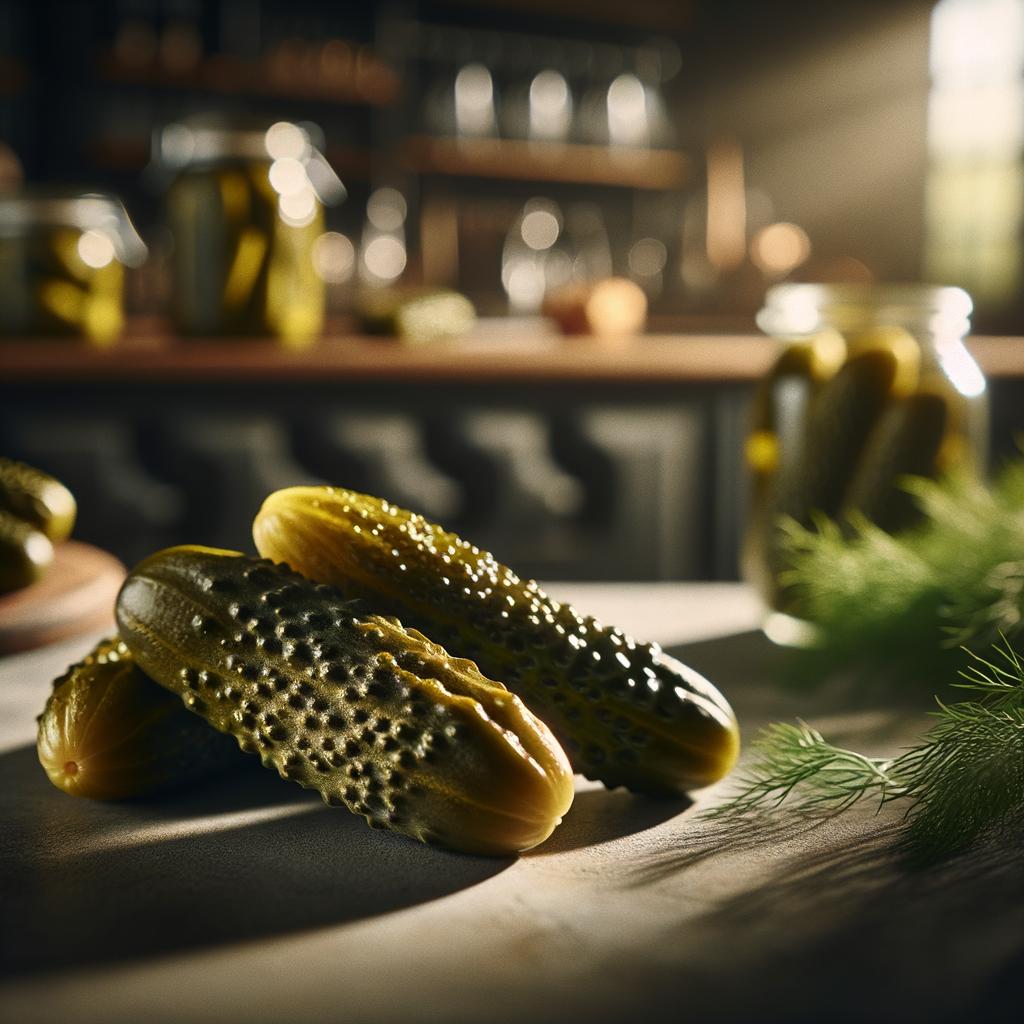Dill Pickles

Description
Dill pickles, a delightful culinary gem, are cucumbers that have been immersed in a brine seasoned with dill, garlic, and other spices. Their appearance is a vibrant green, often speckled with small white dots of dill seeds. Their texture is crunchy and satisfying, with a distinct snap when bitten into. The flavor profile is a harmonious balance of tangy, salty, and subtly sweet, with the fresh, slightly bitter taste of dill and the pungent kick of garlic. What sets dill pickles apart from other pickled vegetables is their distinctive dill flavor, which is both refreshing and comforting.
Primary Uses
Dill pickles are a versatile ingredient, often used as a condiment, snack, or a key component in various dishes. They are a staple in American cuisine, famously adorning burgers and sandwiches, or chopped up in potato salad. In Eastern European cuisines, they are often served alongside hearty stews and meats. Dill pickles also have non-culinary uses; the pickle juice is known to alleviate muscle cramps and is even used by athletes for hydration.
History
The history of dill pickles is steeped in tradition and necessity. The practice of pickling cucumbers originated in India around 2030 B.C., as a means to preserve food. The technique spread to the Middle East and then to Europe, where dill, native to the Mediterranean and Western Asia, was incorporated. The term "pickle" comes from the Dutch word "pekel" or the German "pókel," meaning brine. The dill pickle gained popularity in America when Jewish immigrants from Eastern Europe brought their beloved dill-flavored pickles to New York City. Over time, the dill pickle has evolved from a means of food preservation to a beloved snack and ingredient, with a nostalgic charm that evokes memories of family picnics and backyard barbecues.
Nutritional Information
Dill pickles are low in calories and fat, making them a guilt-free snack. They are a good source of Vitamin K, which is essential for blood clotting and bone health. They also contain a modest amount of Vitamin A, contributing to good eyesight. However, they are high in sodium due to the brining process, so should be eaten in moderation, especially by those monitoring their salt intake. Compared to sweet pickles, dill pickles have fewer calories and sugar, making them a healthier choice. Their probiotic content, resulting from the fermentation process, contributes to a healthy gut microbiome. So, while the humble dill pickle may seem like a simple condiment, it is steeped in history, full of flavor, and packed with nutritional benefits.

